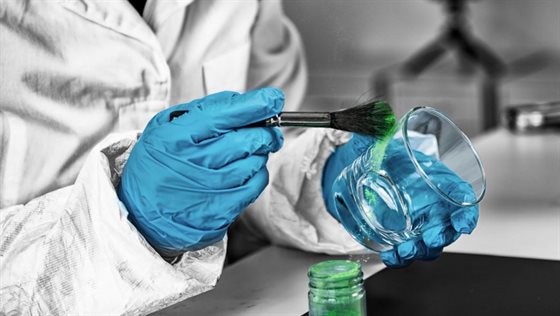An expert in DNA profiling from De Montfort University Leicester (DMU) is set to investigate trust in forensic science as part of a £657,992 project.
Emma Johnston, of DMU’s Leicester School of Pharmacy, is part of an interdisciplinary study led by the Open University. It will research the experience of marginalised groups in the criminal justice system to see where trust – and distrust – in forensic science arises and explore how to build trust in the science.

By exploring the perspectives and experiences of users when looking at DNA and digital evidence, the project will develop insights into how public understanding is shaped around the preparation, sharing, and presentation of forensic evidence, from crime scene to courtroom.
The aim is to examine whether understanding public levels of trust in forensic science can better inform how, when, and why scientific evidence is used in criminal justice procedures.
The research team aim to develop tools and educational resources to help to investigate and improve public trust and understanding of forensic science evidence and the processes associated with its use.
Ms Johnston said: “We want to explore the experience of marginalised communities (e.g., those with less power and choice in their involvement with criminal justice proceedings) and their trust in forensic science. There is evidence of disproportionalities in some Criminal Justice System (CJS) treatments and outcomes and therefore these marginalised groups may have an intrinsic distrust of the CJS or law enforcement.
"Specifically for forensic science, issues such as backlogs in digital evidence and disregard for victim needs during investigations may further compromise user trust of forensic science evidence. In addition, marginalised CJS users may not necessarily possess the knowledge or experience of forensic science compared with others in policing or courtroom processes, yet must nonetheless navigate the CJS to seek justice or defend their innocence. This amounts to a subset of the population who may be users of the CJS, but do not enter, navigate through or exit it on a level playing field with more experienced or privileged users."
To carry out the project the team will first examine existing evidence around what trust in forensic science means to the public generally and marginalised user groups; stakeholder, policy, practitioner, and government understandings of what trust means; and how forensic science is used throughout the criminal justice system. They will then investigate forensic science professionals' perspectives on where the science may enhance an investigation or case and when it might fall short of helping to provide answers.
Once the investigative work has been completed, the team will co-design two interactive participatory games. The first will gather evidence on trust thresholds for forensic science evidence. By utilising small group interactive action, the team will garner meaningful perspectives from marginalised communities whose voices are typically excluded. As decisions handed down are based partially on forensic science, it is necessary to understand how, when and where the science is and is not trusted by users.
The second participatory game will be developed for online use, where participants will be invited to explore trust in Criminal Justice System authorities, gathering community insights to establish baseline trust levels across public user groups. These approaches support the research team's commitment to empowering the public as active co-designers throughout design.
Finally, findings will be used to iteratively co-design a prototype for a tool to measure the implications and mitigation of (dis)trust in forensic science evidence. Tool specifications will be developed throughout the project lifecycle to ensure a relevant, accessible, and desirable design, delivered both with user input and evidence supporting its design.
Lara Frumkin, Head of Discipline of Psychology & Counselling at The Open University, will be leading the project and working with investigators Heather Flowe, University of Birmingham; Maria Maclennan, University of Edinburgh; Niamh NicDaeid, University of Dundee; Vincent Hughes, University of York; Emmanuel Nsiah Amoako, University of the West of England and Emma Johnston, De Montfort University.
Dr Frumkin said: “Forensic science was originally seen as a ground-breaking tool for aiding the investigation of crime, though it is now experiencing a crisis of credibility; government, policymakers, and academics acknowledge that trust and confidence in forensic science evidence is under threat.
“This project will establish levels of trust in forensic science evidence amongst both marginalised communities and comparison user groups, to mitigate mistrust through four specific objectives.”
Posted on Friday 15 December 2023